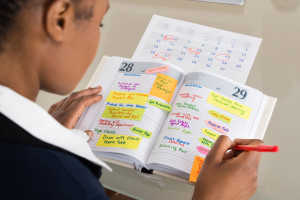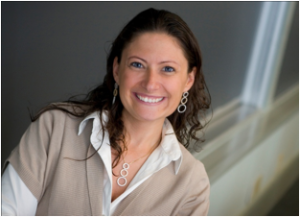Life moves fast, and finding enough hours in the day to get everything done is, at times, a seemingly impossible task. Scheduling, whether keeping a calendar, a to-do list or setting a smartphone reminder, is a saving grace for many people trying to accomplish as much as they can, as efficiently as they can.

But new research from Olin Business School at Washington University in St. Louis, forthcoming in the Journal of Marketing Research, suggests it is best to ditch that to-do list when it comes to having fun.
Gabriela Tonietto, a doctoral candidate in marketing, and Selin Malkoc, associate professor of marketing at Olin Business School, conducted 13 studies examining how scheduling leisure activities affects the way these events are experienced. The research showed that assigning a specific date and time for leisure can have the opposite intended effect, making it feel much like a chore.
Additionally, the researchers found that both the anticipation of the leisure activity and enjoyment from it decreased once it was scheduled.

“A few years ago, I was traveling back home to Turkey and was very excited to catch up with old friends and visit places I had missed,” Malkoc said. “To make sure that I would be able to do everything I want, I scheduled most of these activities.
“To my surprise, however, I soon started to feel reluctant and unenthusiastic at the prospect of the long-awaited reunions that I had scheduled,” she said. “I began to think of each scheduled activity as more like an obligation, even a chore, rather than an enjoyable outing. I even made statements like ‘I have to go get lunch with my friend.’ Was it really possible for such fun and leisure activities to start feeling like work?
“I came back and discussed my experiences with Gabriela. My experiences resonated with her. So, we decided to study this phenomenon scientifically,” Malkoc said.
“Looking at a variety of different leisure activities, we consistently find that scheduling can make these otherwise fun tasks feel more like work and decrease how much we enjoy them,” Tonietto said.
The fix: Tonietto and Malkoc propose a sweet spot, roughly scheduled leisure activities (on a certain day, but with no set time, for example) to ensure that leisure is included in a day but still keeps some flexibility, making it feel less like work.
“We find that the detriment of scheduling leisure stems from how structured that time feels,” Malkoc said.

“While we may tend to think of scheduling in structured terms by referring to specific times — such as grabbing coffee at 3 p.m. — we can also schedule our time in a rougher manner by referring less specifically to time — grabbing coffee in the afternoon,” Tonietto added.
“Roughly scheduling a leisure activity does not feel as structured, does not lead leisure to feel more work-like and thus does not reduce enjoyment,” Malkoc said.
While the research shows less scheduling is a good thing when it comes to fun, Tonietto and Malkoc stress people still need to hang onto their calendars.
“On the flip side, we find that scheduling helps us get things done,” Malkoc said. “We find that scheduling indeed increases our chances of engaging in them. But, once we do, we tend to enjoy it less.”
“So it really is a balancing act, and it comes down to knowing what you will gain and lose when you schedule fun activities,” Tonietto said.
Both researchers are available for interviews: Malkoc at malkoc@wustl.edu and Tonietto at toniettog@wustl.edu.